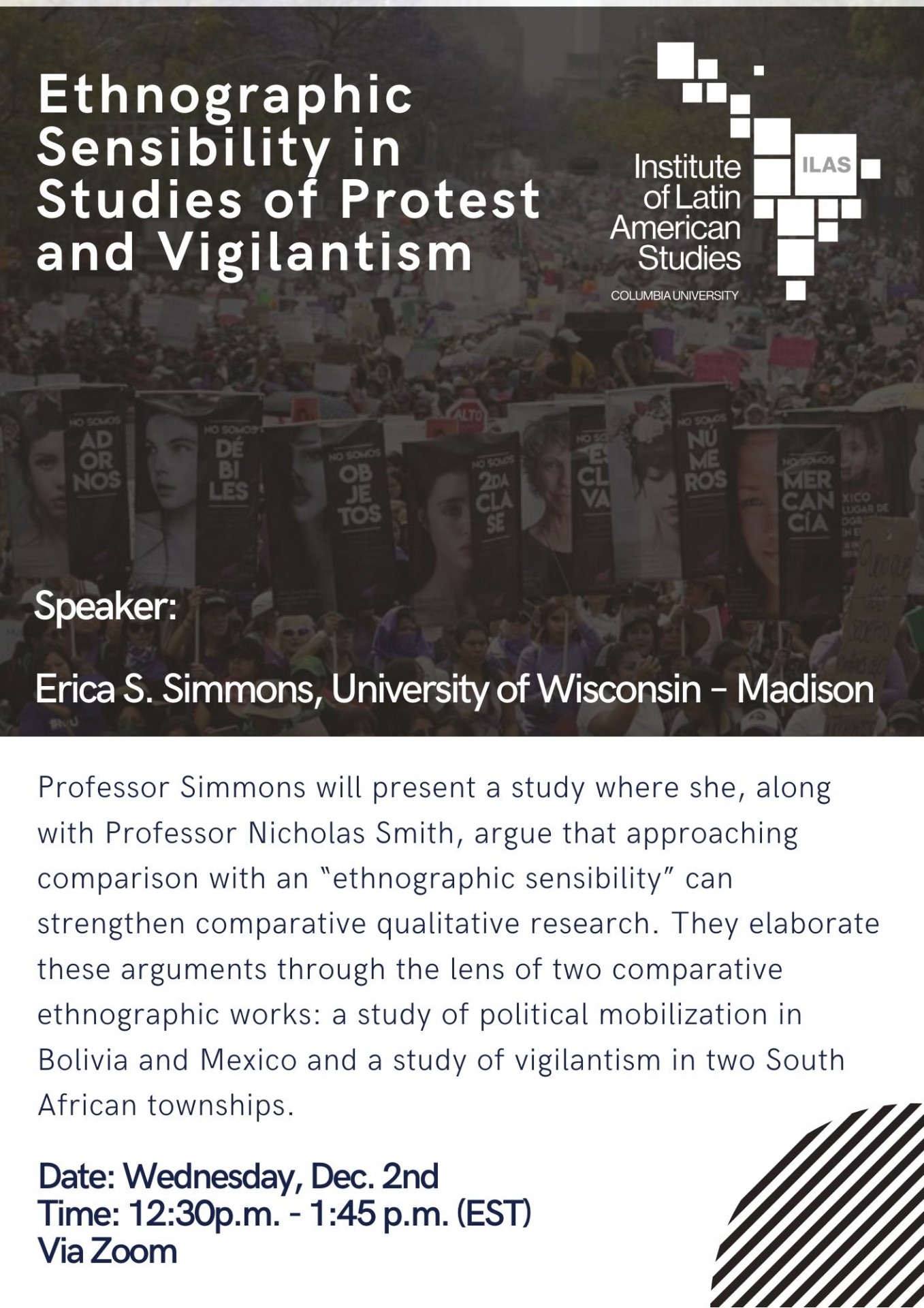Join us to hear from our speaker Erica Simmons (University of Wisconsin – Madison) who will present a project titled "Comparisons with an Ethnographic Sensibility: Studies of Protest and Vigilantism". The abstract is below.
Abstract: To what extent can an ethnographic sensibility enhance comparison? We argue that approaching comparison with an “ethnographic sensibility” – that is, being sensitive to how informants make sense of their worlds and incorporating meaning into our analyses – can strengthen comparative qualitative research. Adopting an ethnographic sensibility would enhance the quality of scholarly arguments by incorporating the processes through which actors ascribe meanings to their lived experiences and the political processes in which they are enmeshed. Because social science arguments often involve accounts of individual actors’ interests, ideas, or impressions, it is imperative to place such cognitive arguments in a broader cultural context. Adopting an ethnographic sensibility requires attention not only to that context, but also to the political and social meanings which make that context intelligible. This approach builds on recent scholarly efforts to embrace complexity in historical analysis. However, it pushes us beyond the methods of difference and agreement that continue to guide much qualitative comparative work by asking scholars to make the complex meanings that often shape politics the object of inquiry – something that is rarely done even in the best recent qualitative comparative work. We elaborate these arguments through the lens of two comparative ethnographic works: a study of political mobilization in Bolivia and Mexico and a study of vigilantism in two South African townships. Each study shows how comparison with an ethnographic sensibility can enable scholars to make theoretical and empirical contributions that would have been impossible without an approach to comparison attentive to meaning-making practices. They also serve as examples of how comparison with an ethnographic sensibility can utilize comparisons of multiple types of cases – from geographic areas to specific practices to local meanings – to make their claims and challenge core theories and conceptual categories in political science in the process.
We will be hosting the meeting on Zoom at this link with passcode iab707.
This event is organized by the Columbia University Comparative Politics Seminar and co-sponsored by the Institute of Latin American Studies.

